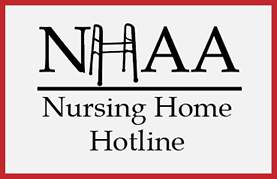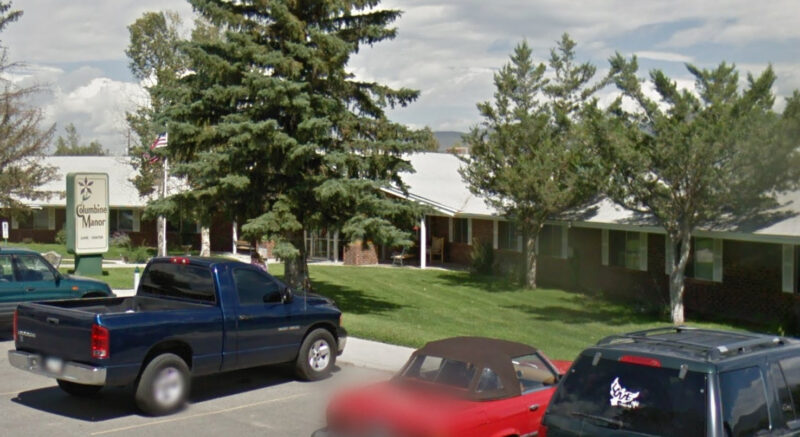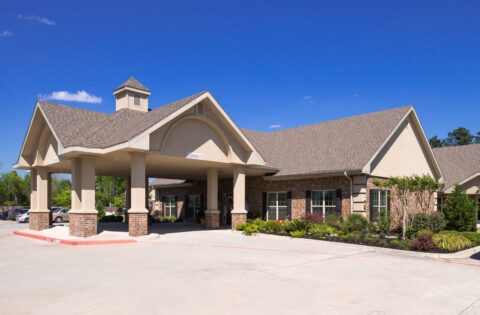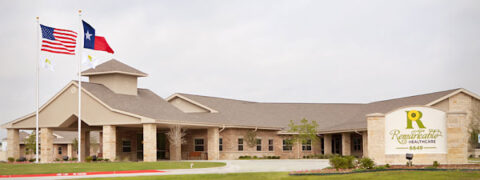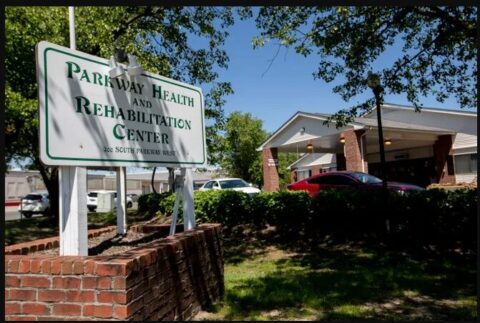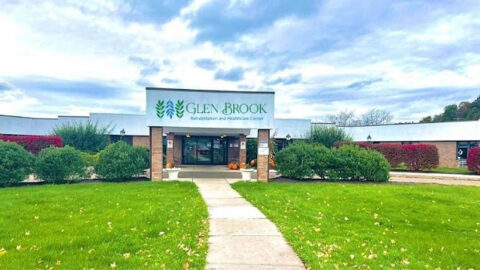State Findings:
Ensure drugs and biologicals used in the facility are labeled in accordance with currently accepted
professional principles; and all drugs and biologicals must be stored in locked compartments, separately locked, compartments for controlled drugs. 43135
Based on observations and interviews, the facility failed to ensure medications were secured properly in one out of one medication storage room.
Specifically, the facility failed to ensure the medication room was locked in a secured manner on two occasions.
II. Facility policy
The Storage and Expiration Dating of Medications, Biologicals, Syringes and Needles, revised 10/28/19, was provided by the nursing home administrator (NHA) on 8/5/21 at 11:30 a.m. via email. The policy was read and revealed in pertinent part:
Facility should ensure that all medications and biologicals, including treatment items, are securely stored in a locked cabinet/cart or locked medication room that is inaccessible by residents and visitors.
III. Observations
On 8/2/21 at 7:15 p.m. the facility medication storage room door was visibly slightly opened, ajar. The door was not pulled shut to lock the door. The door had two locks. One lock was in the door knob and another lock was at the top of the door on the right side. The door remained unlocked from 7:15 p.m. until 7:30 p.m.
-At 7:25 p.m. Resident #24 approached the medication storage room door and reached for the door knob. Certified nurse aide (CNA) #1 saw Resident #24 reached for the door knob and offered him a cookie. CNA #1 assisted the resident in his wheelchair and escorted him away from the door knob to a common area for the residents. CNA #1 did not pull the door shut to lock it and it remained slightly opened.
-At 7:30 p.m. licensed practical nurse (LPN) #1 walked to the medication room door. LPN #1 lifted her keys in her right hand to unlock the top lock. She did not put the key in the lock when she realized the door was slightly opened. She pushed the door open with her opened right hand and entered the medication storage room. She closed and locked the door after she entered the medication room.
LPN #1 was interviewed on 8/2/21 at 7:30 p.m. She said the door was supposed to always be locked. She said anyone who entered the room was instructed to make sure the door was securely locked at all times. She said the nurses were the only staff members with keys that evening to the medication storage room. She said if anyone saw it open and walked by the door it should have been pulled shut. She said there were medications including narcotics in the room which needed to be secured behind a locked door. She said the door to the medication storage room was left open and she would lock the door immediately.
-At 7:38 p.m. LPN #1 left the medication room and pulled the door behind her and checked that the door was locked as she left. RN #1 was interviewed on 8/2/21 at 7:40 p.m. She said the facility’s medication room was always locked. She said the room contained medications including narcotics. She said only the nurses had keys to the medication storage room.
-At 7:42 p.m. registered nurse (RN) #1 unlocked the door to the medication room with a key after LPN #1 had locked the door. At 7:44 p.m. RN #1 walked out of the medication room and did not pull the door to lock it. The door was slightly opened, visibly ajar, and unlocked until 7:49 p.m.
-At 7:49 p.m. RN #1 was interviewed again. She said after she grabbed medication for a resident from the medication room she thought she had locked the medication storage room door when she left the room. She said she did not lock the door. She said the door should always remain locked. RN #1 was seated in the nurses room for charting that was across the hallway from the medication storage room. She stood up and walked to the medication storage room and pulled the door closed to the locked position.
IV Administrative interview
The director of nursing (DON) was interviewed on 8/5/21 at 11:00 a.m. She said the facility had only one medication room which contained many drugs which required the room to be locked. She said the door should always remain locked. She said the nursing staff had been taught to lock the door and that the staff should know it was a regulation that medication storage rooms were to be kept locked. She said if the door was open, staff, residents or visitors would be able to walk right in the secured area.
Your Experience Matters
...and we want to hear it.
NHAA is here to assist families, residents, and the community by sounding the alarm on issues like those found above. This nursing home and many others across the country are cited for abuse and neglect.
If you have or had a loved one living in this nursing home or any other nursing home where you suspect any form of abuse or neglect, contact us immediately.
We have helped many already and we can help you and your loved one as well by filing a state complaint, hiring a specialized nursing home attorney or helping you find a more suitable location for your loved one.
You can make a difference, even if your loved one has already passed away.
Please give us a call at 1-800-645-5262 or fill out our form detailing your experience.
Personal Note from NHA-Advocates
NHAA shares with all the families of loved ones who are confined to nursing homes the pain and anguish of putting them in the care of someone else. We expect our loved ones to be treated with dignity and honor in the homes we place them. We cannot emphasize enough to family members of nursing home residents; frequent visits are essential to our loved ones’ well-being and safety.
If you are struggling and upset, click here to understand your options, or contact us through our contact form or call our toll free hot line number: 1-800-645-5262.
